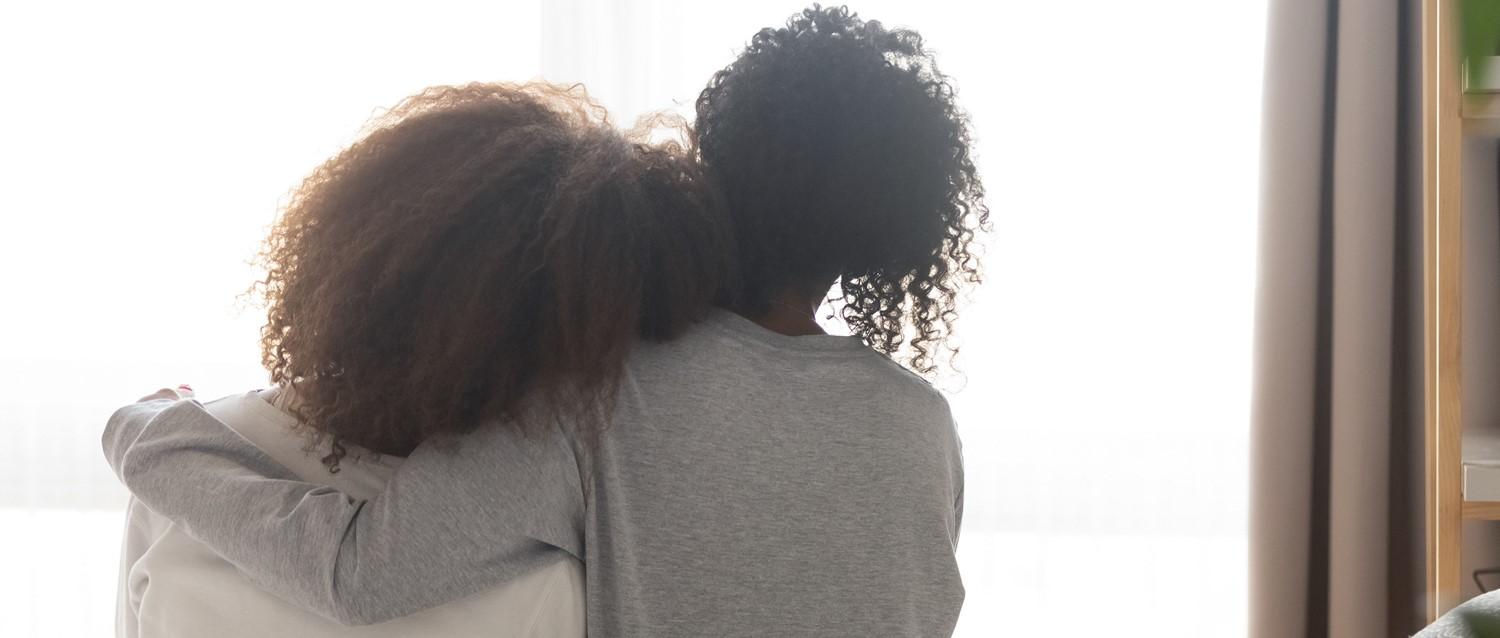
What is peer support and how can it help you?
Peer reviewed by Dr Krishna Vakharia, MRCGPAuthored by Ellie BroughtonOriginally published 21 Nov 2022
Meets Patient’s editorial guidelines
- DownloadDownload
- Share
- Language
- Discussion
Peer support is broadly defined by Mind as a place where people can ‘use their own experiences to help each other’.
In this article:
Continue reading below
What is peer support?
Peer support is an alternative to therapy, but offers some of the same benefits, such as sharing lived experience, relating to others and experiencing acceptance. People might use peer support when they have a physical health diagnosis, such as diabetes, or a mental health problem such as addiction.
Peer support can also help people with a marginalised identity, such as a person from LGBTQI+ community, or someone with a particular role, such as a carer.
In some cases, peer support or emotional support can be part of professional wellbeing services. For example, the British Medical Association runs a peer support service for doctors.
Historically, peer support has been well-used by people in their recovery journey for 12-step programs to treat addiction, such as Alcoholics Anonymous.
What can peer support help with?
Back to contentsPeer support can help with a range of different mental health conditions, and it can also help with the mental health aspect of physical health conditions. For example, Diabetes UK has just launched the development of a peer support network for young people with Type 1 diabetes. The charity already runs successful peer support networks for adults with types 1 and 2 diabetes.
According to the British Association for Counselling and Psychotherapy (BACP), peer support can help provide:
Connection.
Belonging.
Peer relationships.
Reduced sense of isolation.
Access to people with shared experience.
Sense of acceptance.
Pete Granger runs an in-person peer support group at Trinity Community Project, a charity in St Albans, Hertfordshire, for people with a mental health diagnosis or learning disability. He says the group helps members share what their lives are really like.
"There is a sense that they are judged quite strongly by either their mental illness or their learning difficulties and they don't feel they have a voice, so the group is validating for them," he says.
Members say the group helps normalise their experiences, reduce isolation, and develop social skills. "After Covid-19, when people were anxious about being in rooms with others, the group built up a sense of trust," Granger adds.
Kama Langham, the service manager at Trinity, adds: "The core of the community project is about reducing isolation, improving social skills, and providing social interaction, which is where the peer support group came in initially – to support relationships."
Continue reading below
Types of peer support
Back to contentsPeer support can be offered in a range of ways, including informal telephone calls, group get-togethers, online forums or structured training offered by paid peers in partnership with professionals.
Two common types of peer support are groups and one-to-one support.
Peer support groups
Peer support groups can offer a way for people to speak and hear about lived experience in a group of people who might share their diagnosis or a part of their identity. Groups may meet online or in-person.
One-to-one peer support
Mentoring and befriending are ways for people to access peer support at an individual level. Support might be face to face, by phone, or online.
Some peer support is provided by people who have both lived experience and professional training, for example a recovery coach. People trained in peer support might be called a ‘peer provider’ or ‘certified peer specialist’.
Where can I find peer support groups?
Back to contentsYour GP might be able to help you find peer support around a particular problem or diagnosis, but peer support services are often open to self-referral:
Charities often run peer support groups and Mind has a good resource for people looking for support with a mental health diagnosis or symptom. Befriending Networks runs a directory for one-to-one support.
Continue reading below
Is peer support right for me?
Back to contentsOne of the positives of peer support is that some types are highly accessible: for example free groups are accessible to people on lower incomes, and online or phone support are accessible for people with mobility issues.
That said, peer support is not a form of clinical mental health treatment and while it can support people with a mental health condition, it tends to be recommended alongside medication and/or therapy.
Further Reading
Back to contentsTracey and Wallace: Benefits of peer support groups in the treatment of addiction.
Thompson et al: Peer support for people with chronic conditions.
Patient picks for Healthcare

General health and lifestyle
What student health benefits can I get?
Student life can be pretty demanding, so it makes sense to do everything you can to stay as fit and healthy as possible. Here, we take a look at what student health benefits you can get for free - or almost free - and how to claim them.
by Danny Chadburn

General health and lifestyle
What is social prescribing - and can it improve your health?
The proposed NHS ten-year strategy focuses on illness prevention. This includes 'social prescribing', enabling healthcare professionals to refer people to local, non-clinical services. We examine whether this is a viable alternative for those who would otherwise need medication.
by Georgia Gallant
Continue reading below
Article history
The information on this page is peer reviewed by qualified clinicians.
21 Nov 2022 | Originally published
Authored by:
Ellie Broughton
Peer reviewed by
Dr Krishna Vakharia, MRCGP

Ask, share, connect.
Browse discussions, ask questions, and share experiences across hundreds of health topics.

Feeling unwell?
Assess your symptoms online for free
Sign up to the Patient newsletter
Your weekly dose of clear, trustworthy health advice - written to help you feel informed, confident and in control.
By subscribing you accept our Privacy Policy. You can unsubscribe at any time. We never sell your data.